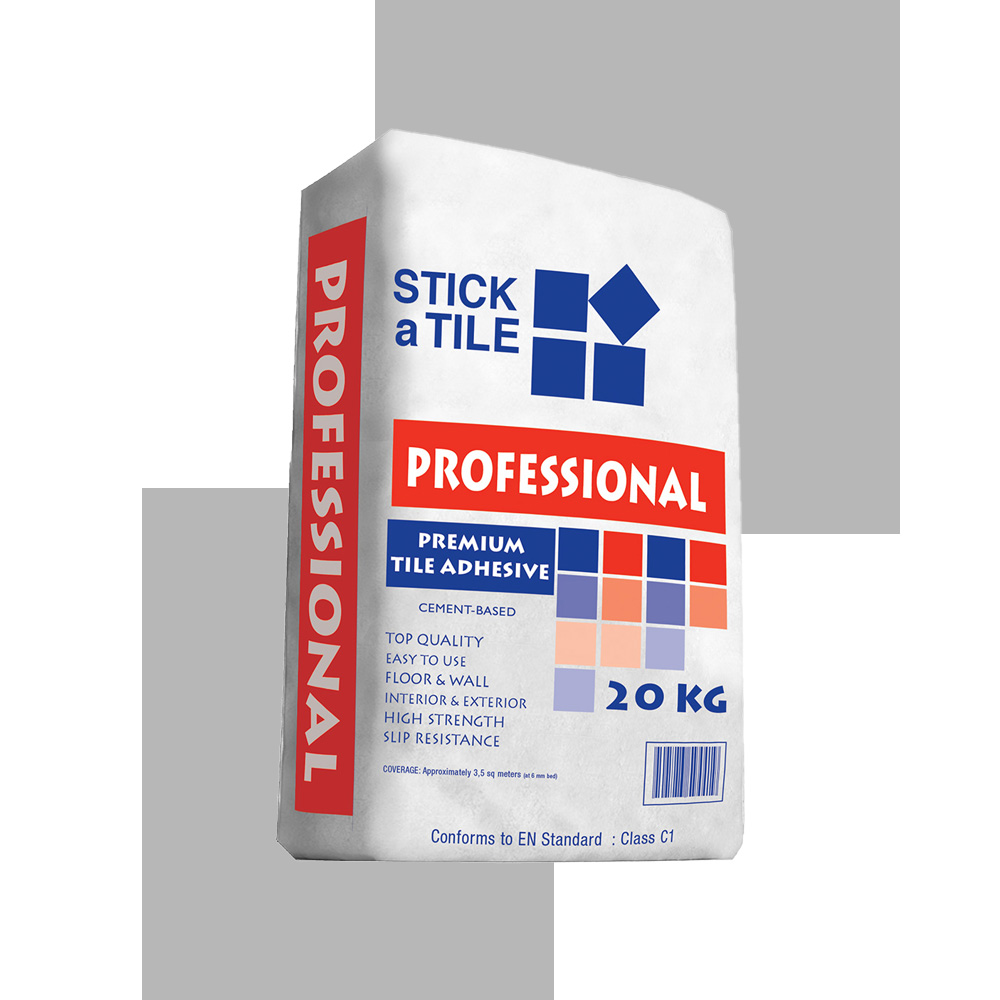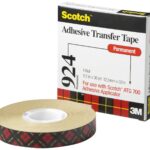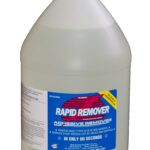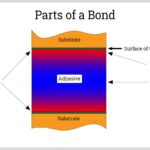If you want to stick something to tile, you need to use an adhesive that is specifically designed for that purpose. Otherwise, the adhesive will not adhere correctly and the bond will be weak. There are many different adhesives on the market that are designed for use on tile, so you should have no trouble finding one that meets your needs. Just be sure to read the labels carefully to make sure that it will work for your specific application.
What is the best adhesive for tiling over tiles
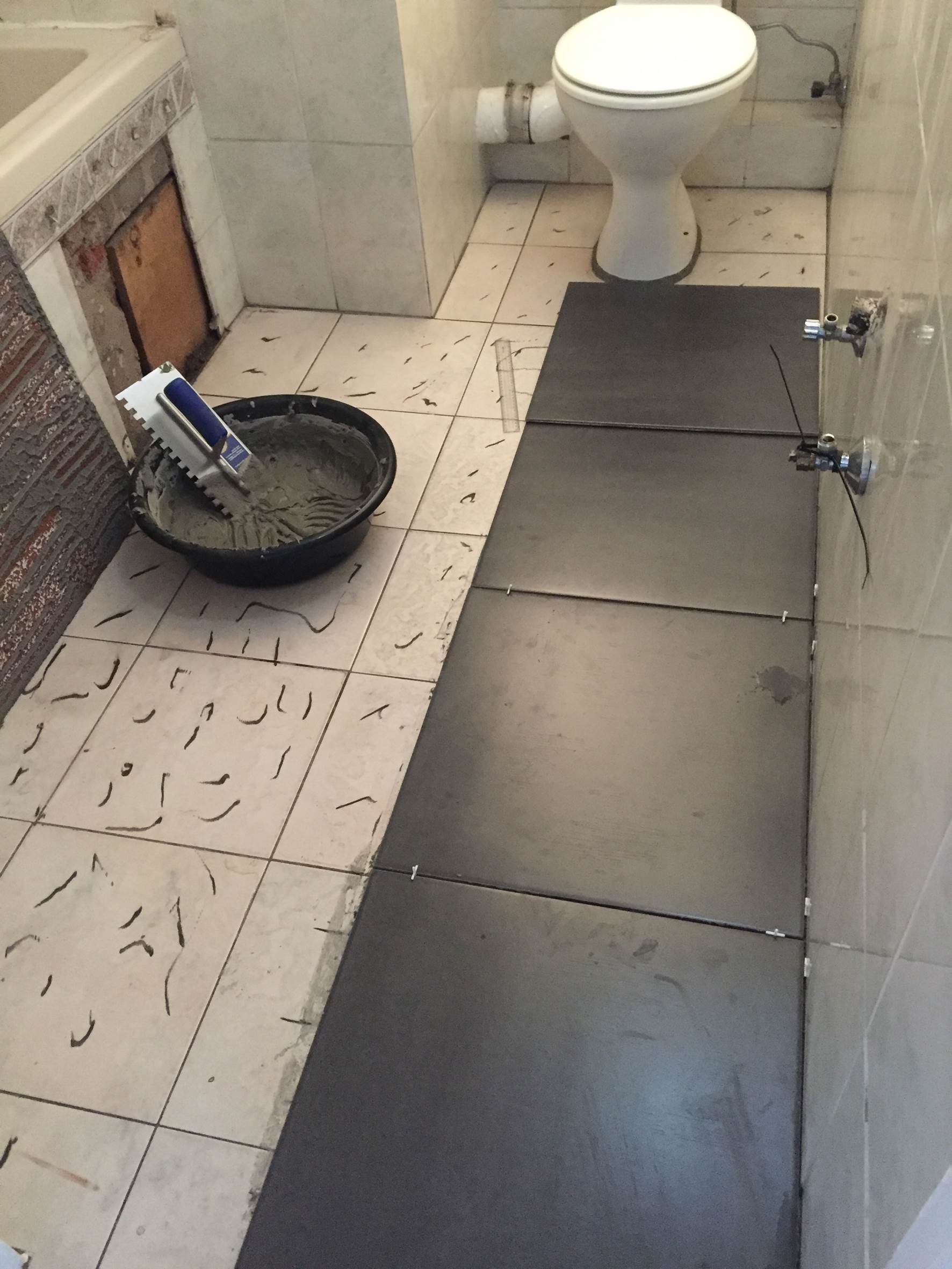
This type of adhesive will create a strong bond between the tiles and the surface, and it will also help to prevent any moisture from getting through. Other adhesives that can be used include silicone and acrylic, but these are not as strong as epoxy.
Do I need special adhesive to tile over tiles?
No, you do not need special adhesive to tile over tiles. You can use a variety of adhesives, including tile adhesive, to stick tiles to tiles. However, you may need to use a stronger adhesive if the tiles are not well bonded to the underlying surface.
Can you tile directly over tile?
Yes, you can tile directly over tile, but you need to use the right adhesive. tile adhesive is a strong, waterproof glue that will hold the new tile in place. Make sure to follow the manufacturer’s instructions for applying the adhesive and laying the new tile.
Can you lay tile over existing tile?
You can lay tile over existing tile, as long as the surface is smooth and level. Adhesive will stick to tile, so you’ll need to use an adhesive that is appropriate for the type of tile you’re using. If you’re using a heavier tile, you may need to use a stronger adhesive.
How do you get tile to stick to tile?
To get tile to stick to tile, you need to use an adhesive that is specifically designed for tile. Most adhesives will not work well on tile, so it is important to find one that is specifically made for this material. You can find these adhesives at most hardware stores.
What’s the best adhesive to stick wood on tiles?
There are a variety of adhesives that can be used to stick wood to tiles, but some are better than others. For a strong bond, an epoxy or a construction adhesive is a good choice. If you’re looking for something that’s easier to remove, a silicone adhesive or double-sided tape is a better option. Whichever adhesive you choose, be sure to clean both the tile and the wood surface before applying the adhesive.
How to choose the correct tile adhesive or mortar?
There are a few things to consider when choosing the correct tile adhesive or mortar. The type of tile, the surface the tile will be adhered to, and the environment the tile will be in are all important factors. For example, if you are tiling a kitchen backsplash, you will need a waterproof adhesive or mortar. If you are tiling a floor, you will need an adhesive or mortar that can withstand foot traffic. The surface the tile will be adhered to is also important.
If you are tiling a wall, you will need an adhesive or mortar that can be used on drywall. If you are tiling a floor, you will need an adhesive or mortar that can be used on concrete. The environment the tile will be in is also a factor. If the tile will be in a wet area, like a shower, you will need an adhesive or mortar that is resistant to mold and mildew. Once you know the type of tile, surface, and environment the tile will be in, you can narrow down your choices and choose the best adhesive or mortar for the job.
What types of adhesives are best for terracotta tiles?
There are many adhesives that can be used to stick tiles to a surface, but not all of them work well with terracotta tiles. Some adhesives can cause the tiles to crack or break, so it is important to choose one that is specifically designed for use with terracotta. One type of adhesive that works well with terracotta tiles is a water-based adhesive. This type of adhesive is easy to apply and dries quickly, so it is ideal for use in areas where the tiles need to be installed quickly. Water-based adhesives also allow the tiles to be repositioned if necessary, so they are perfect for use in areas where the tiles may need to be adjusted.
Another type of adhesive that works well with terracotta tiles is an epoxy-based adhesive. This type of adhesive is stronger than water-based adhesives and is perfect for use in areas where the tiles will be subject to a lot of wear and tear. Epoxy-based adhesives can also be used to create a waterproof seal around the edges of the tiles, so they are perfect for use in bathrooms or kitchens. whichever adhesive you choose, make sure to test it on a small area of the tile before applying it to the entire surface. This will ensure that the adhesive works well with the tile and will not cause any damage.
What is the best tile adhesive remover?
Tile adhesive removers are designed to remove the adhesive that bonds tiles to a surface. There are a variety of tile adhesive removers on the market, and each has its own advantages and disadvantages. Some tile adhesive removers are more effective than others, and some are more expensive. The best tile adhesive remover is the one that is most effective at removing the adhesive without damaging the tile. Some tile adhesive removers can damage the tile, so it is important to read the labels carefully before purchasing one.
The most effective tile adhesive removers are usually the most expensive. However, there are some less expensive options that are effective. It is important to compare the prices of tile adhesive removers before purchasing one. There are a variety of tile adhesive removers on the market, and each has its own advantages and disadvantages. The best tile adhesive remover is the one that is most effective at removing the adhesive without damaging the tile. The most effective tile adhesive removers are usually the most expensive. However, there are some less expensive options that are effective.
What is the best adhesive for wall tile
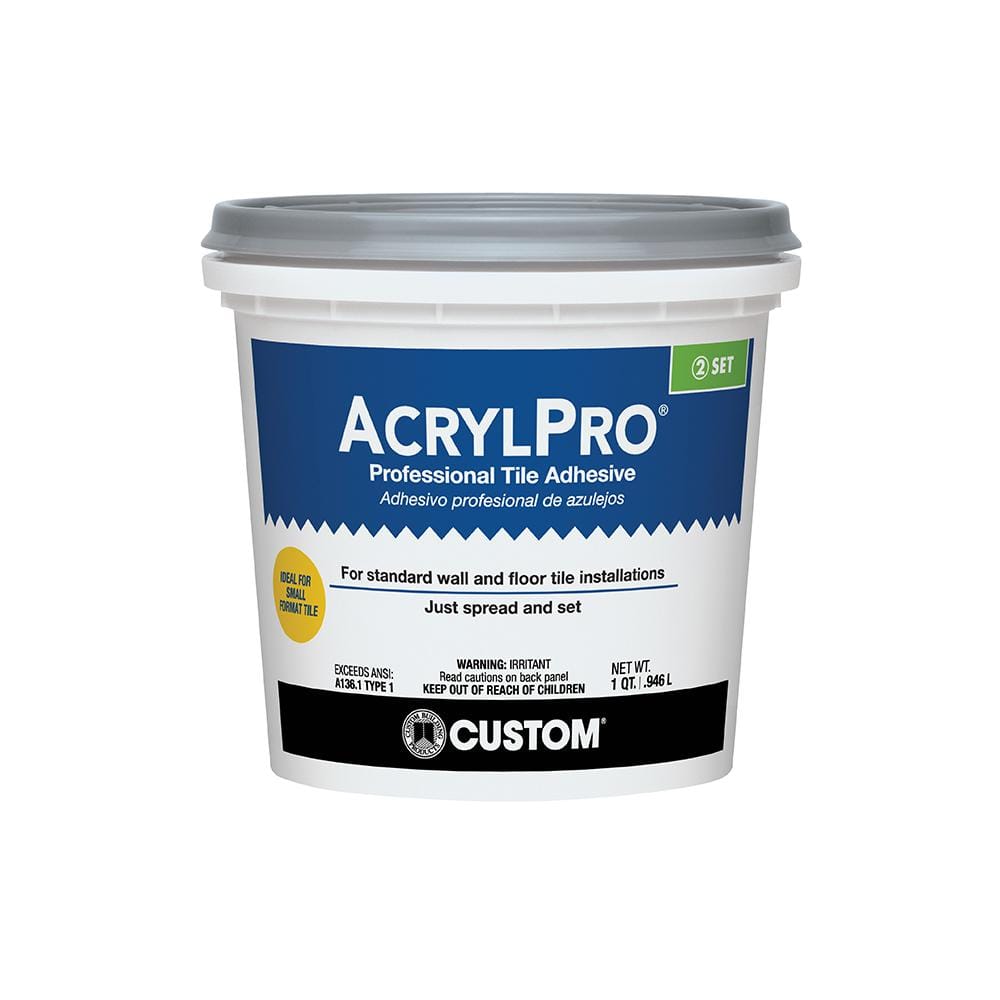
There are a few different types of adhesives that can be used to stick tiles to walls. The best type of adhesive to use depends on the type of tile and the surface of the wall. For most types of tile, a good quality construction adhesive will work well. If the tiles are very heavy or the wall is not very smooth, you may need to use a stronger adhesive such as epoxy. Some tile adhesives are specifically designed for use on walls.
These adhesives usually have a stronger bond and are easier to work with than other types of adhesives. When choosing an adhesive for wall tile, be sure to read the label carefully. Make sure the adhesive is compatible with the tile and the surface of the wall. Follow the manufacturer’s instructions for best results.
What adhesive should I use for wall tile?
There are various adhesives available for wall tiles, so it is important to choose the right one for your needs. If you are looking for an adhesive that will stick to tile, then you should consider using a product specifically designed for this purpose. There are many products on the market that claim to be able to stick to tile, but not all of them will provide a strong and durable bond. When choosing an adhesive for wall tiles, it is important to consider the type of tile you are using, as well as the surface you are attaching the tile to. For example, if you are using ceramic tiles, then you will need to use a different adhesive than if you were using porcelain tiles.
In general, however, there are a few adhesives that are suitable for most types of tiles. These include products like epoxy resin or silicone-based adhesives. If you are unsure about which adhesive to use, then you should consult with a professional before proceeding.
How thick should adhesive be for wall tiles?
Adhesive should be thick enough to fill in any gaps between the tiles and the wall. It should also be smooth so that it will lay down flat and not cause any lumps or bumps in the finished surface.
Should you put tile adhesive on the tile or wall?
Some people say that it doesn’t matter, as long as the adhesive is strong enough. Others believe that it is best to put the adhesive on the wall, as this will create a stronger bond. Personally, I believe that it is best to put the adhesive on the wall. I think that this creates a stronger bond and helps to prevent the tiles from coming loose. However, it is important to make sure that the adhesive is evenly distributed so that there are no weak spots.
What is the best adhesive for bathroom wall tiles?
There are a few types of adhesives that can be used to stick tiles to bathroom walls. However, not all adhesives are created equal. Some are stronger than others and some are more waterproof than others. One type of adhesive that is often used for bathroom wall tiles is mastic. Mastic is a strong adhesive that can withstand a lot of moisture.
It is also relatively easy to apply. Another type of adhesive that can be used for bathroom wall tiles is thinset mortar. Thinset mortar is a very strong adhesive that is used for setting tile. It is more difficult to apply than mastic, but it is much more durable. The best adhesive for bathroom wall tiles depends on the specific circumstances. If the tiles are going to be exposed to a lot of moisture, then a waterproof adhesive is a good choice. If the tiles are going to be subject to a lot of wear and tear, then a stronger adhesive is a better choice.
Which is better tile adhesive?
There are a few different types of tile adhesive, each with its own advantages and disadvantages. Ceramic tile adhesive is one of the most popular types. It is a water-based adhesive that is easy to apply and clean up. It dries quickly and provides a strong bond between the tile and the surface. Modified thinset is another type of tile adhesive.
It is a cement-based adhesive that is more durable than ceramic tile adhesive. It is also more difficult to apply and clean up. Which is better tile adhesive depends on the project. For most DIY projects, ceramic tile adhesive is the best option. It is easy to use and provides a strong bond. For more challenging projects, modified thinset may be the better option. It is more durable and provides a stronger bond.
What is the best adhesive to use in a shower?
This type of adhesive can withstand exposure to water and will keep your tile firmly in place. Other adhesives, such as epoxy, can also be used, but they may not be as durable in a wet environment.
What do you use to adhere ceramic tile to a wall?
If you’re looking to adhere ceramic tile to a wall, you’ll need to find an adhesive that is specifically designed for that purpose. There are a few different types of adhesives that can be used for this, but not all of them will work well on all types of tile. You’ll need to make sure that you find an adhesive that is compatible with the type of tile you’re using. Once you’ve found the right adhesive, you’ll need to apply it to the back of the tile. You can do this with a trowel or a putty knife.
Once the adhesive is applied, you’ll need to press the tile into place on the wall. Make sure that you’re pressing it firmly so that it will stick. You may need to wait a few hours for the adhesive to dry completely before you can grout the tile. Once the tile is dry, you can go ahead and apply the grout. Be sure to follow the manufacturer’s directions when you’re doing this.
Why are my wall tiles not sticking?
There are a few reasons why your wall tiles might not be sticking. The first possibility is that the surface you’re trying to adhere the tiles to isn’t completely clean. Any dirt, dust, or grease on the surface will prevent the tiles from sticking properly. Make sure to clean the surface thoroughly before applying the tiles. Another possibility is that the adhesive you’re using isn’t meant for use on tiles.
There are different adhesives for different surfaces, so make sure you’re using an adhesive that’s meant for tile. If you’re not sure, you can always ask a salesperson at the hardware store for help. Another possibility is that the tiles themselves are dirty. If the tiles have been stored in a dusty area, they might have a film of dust on them that’s preventing the adhesive from sticking. Try cleaning the tiles with a damp cloth before applying the adhesive. If you’ve tried all of these things and the tiles still aren’t sticking, you might need to use a different adhesive. Some adhesives are stronger than others, so if the first one you try isn’t working, try a different one. There are plenty of options to choose from, so you should be able to find one that works for your project.
Is it better to put adhesive on the tile or the wall?
When it comes to adhering tile to a surface, there are two main options: adhesive on the tile or adhesive on the wall. Each has its own advantages and disadvantages. Adhesive on the tile is more convenient and less messy, since you can simply apply the adhesive to the back of the tile before installation. However, this method can be less reliable, since the tile may not always adhere properly to the surface. Adhesive on the wall is more reliable, since you are essentially creating a glue bond between the tile and the wall. However, this method is more messy and difficult, since you have to apply the adhesive to the wall surface before installation.
How do you get tile to stick to the wall?
If you want to get tile to stick to the wall, you need to use an adhesive that is specifically designed for tile. You can find this type of adhesive at most hardware stores. To apply the adhesive, you will need to spread it on the back of the tile using a notched trowel. Then, you will need to press the tile into place on the wall and hold it there for a few minutes until the adhesive sets.
Why won’t my tiles stick to the wall?
There are a few reasons why your tiles might not be sticking to the wall properly. One possibility is that the surface of the wall is not clean enough. Make sure that you clean the wall thoroughly before attempting to stick the tiles on. Another possibility is that the adhesive you’re using is not meant for use on tile. Be sure to check the label on the adhesive to make sure it is compatible with tile. Finally, it is possible that the tiles themselves are not smooth enough. If the surface of the tile is not completely smooth, the adhesive will not stick properly.
Why is my tile falling off the wall?
If you’re noticing your tile falling off the wall, it’s likely due to the adhesive not sticking properly. This can be caused by a few different things, such as the surface not being clean enough or the adhesive not being applied correctly. If you’re not sure what the problem is, it’s best to consult with a professional to get to the bottom of it. In the meantime, here are a few tips to try to get your tile to stay put:
- Make sure the surface is clean and free of debris before applying the adhesive.
- Use a quality adhesive specifically designed for tile.
- Apply the adhesive in a thin, even layer.
- Press the tile firmly into place and hold for a few seconds to allow the adhesive to set.
- Wipe away any excess adhesive before it has a chance to dry.
What mortar to use for wall tile?
There are different types of mortar that can be used for wall tiling, depending on the type of tile and the surface that it is being applied to. For example, a flexible adhesive is often used for tiles that are being applied to a curved or uneven surface. A stronger mortar mix is usually required for heavier tiles, such as natural stone or porcelain. In general, it is best to consult with a professional before choosing the type of mortar to use for your particular project.
What is the best adhesive for shower tile
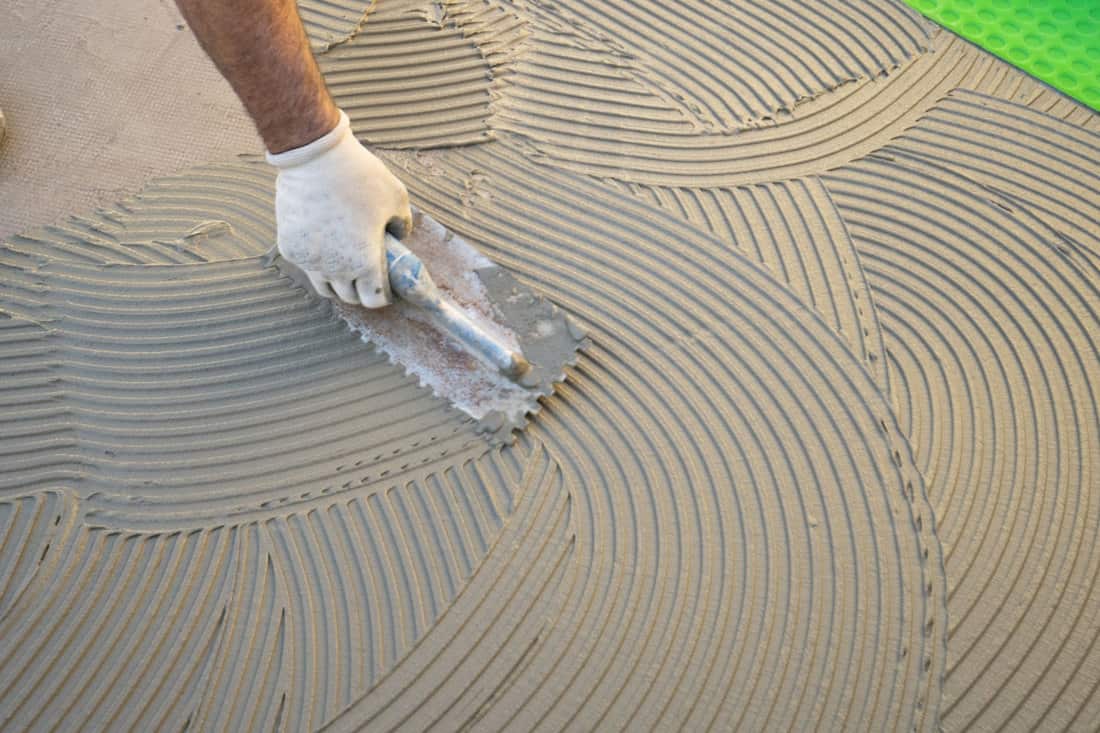
If you are looking for an adhesive to use on shower tile, there are a few things to keep in mind. First, you need to find an adhesive that is waterproof. Second, you need to find an adhesive that will hold up to the heat and humidity of a shower. Third, you need to find an adhesive that will stick to tile. There are a few different types of adhesives that you can use on shower tile.
One type of adhesive is a silicone adhesive. Silicone adhesives are waterproof and can withstand the heat and humidity of a shower. Silicone adhesives will also stick to tile. Another type of adhesive is an epoxy adhesive. Epoxy adhesives are also waterproof and can withstand the heat and humidity of a shower. Epoxy adhesives will also stick to tile. So, what is the best adhesive for shower tile? That depends on your needs. If you need an adhesive that is waterproof and can withstand the heat and humidity of a shower, then silicone or epoxy adhesives are a good choice. If you need an adhesive that will stick to tile, then silicone or epoxy adhesives are a good choice.
What is the best adhesive to use in a tile shower?
This will ensure that your tile stays in place and doesn’t come loose over time. silicone adhesives are a good option for this, as they are made to withstand moisture and won’t break down in the presence of water.
Do you need special tile adhesive for a shower?
No, you do not need special tile adhesive for a shower. Any adhesive that is strong enough to hold the tile in place will work. However, you may want to use a waterproof adhesive if the shower will be exposed to water.
Should I use mastic or thinset for shower tile?
Mastic and thinset are both adhesives that can be used to stick tile to a surface. Mastic is a bit easier to work with, but thinset provides a stronger bond. If you’re not sure which one to use, consult with a professional or ask at your local hardware store.
What is the best tile adhesive?
There are a few things to consider when choosing the best tile adhesive for your project. Tile adhesive is used to adhere tile to a variety of surfaces, such as walls, floors, and countertops. The type of surface you are tiling will dictate the type of tile adhesive you need. For example, if you are tiling a floor, you will need a different type of tile adhesive than if you are tiling a wall. The type of tile you are using will also dictate the type of tile adhesive you need.
For example, ceramic tiles require a different type of tile adhesive than porcelain tiles. When choosing the best tile adhesive for your project, be sure to consider the type of surface you are tiling, the type of tile you are using, and the size of the tile. With so many different types of tile adhesives on the market, it is important to choose the one that is best suited for your project.
What is the best bathroom tile for a shower?
When it comes to choosing the best tile for your shower, there are a few things to keep in mind.
- First, you’ll want to choose a tile that is waterproof and resistant to mold and mildew.
- Second, you’ll want to choose a tile that is easy to clean and maintain.
- Third, you’ll want to choose a tile that is slip-resistant.
- When it comes to choosing the best adhesive for your tile, you’ll want to choose one that is waterproof and resistant to mold and mildew.
- You’ll also want to choose an adhesive that is easy to apply and that will hold your tile in place.
What kind of adhesive to use on shower tile?
If you’re looking for an adhesive that will stick to shower tile, there are a few things to keep in mind.
- First, you’ll need to choose a water-resistant adhesive.
- Second, you’ll want to make sure the adhesive can handle the weight of the tile.
- Third, you’ll need to make sure the adhesive can withstand high temperatures.
- fourth, you’ll want to ensure the adhesive can bond to both the tile and the grout.
- fifth, you’ll need to make sure the adhesive is compatible with the cleaner you’ll be using.
What tile adhesive should I use?
There are a few things to consider when choosing a tile adhesive, such as the type of tile, the surface you are adhering the tile to, and the climate. For example, porcelain tiles are heavier and require a stronger adhesive, while mosaic tiles are lighter and can be glued with a weaker adhesive. The surface you are adhering the tile to will also affect the type of adhesive you need. If you are adhering the tile to a drywall, you will need a different adhesive than if you are adhering the tile to a concrete surface.Finally, the climate you are in will also affect the type of adhesive you need. If you live in an area with high humidity, you will need an adhesive that can withstand the moisture. There are a few tile adhesives on the market, so it is important to choose the one that is right for your project. If you are unsure, you can always ask a professional at your local hardware store for advice.
